| |
| 春 Spring |
| 立春
(りっしゅん)
Risshun
The Beginning of spring
(Spring commences)
(一月節)
(January-setsu)
2月4日
-5日頃
February 4th
-5th
太陽黄経
solar longitude
315° |
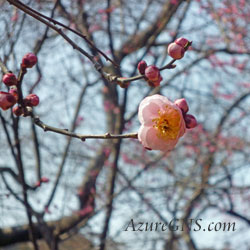 |
| 第一候(初)
The 1st-ko
|
日本
Japan |
東風解凍
(はるかぜ こおりを とく)
(こち こおりを とく)
(とうふう こおりを とく)
「東風が厚い氷を溶かし始める」
“Warm winds from the east start to melt thick ice.” |
| 中国
China |
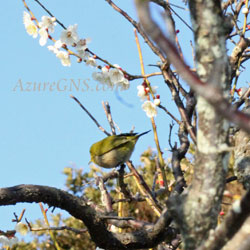 |
| 第二候(次)
The 2nd-ko |
日本
Japan |
黄鶯睍睆
(うぐいす なく)
「鶯が山里で鳴き始める」
“Nightingales begin to sing in mountain villages.” |
| 中国
China |
蟄虫始振
(ちっちゅう はじめて ふるう)
「冬籠りの虫が動き始める」
“Insects start to move after hibernation.” |
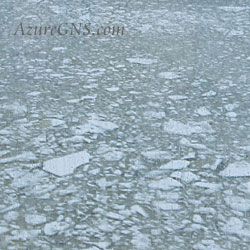 |
| 第三候(末)
The 3rd-ko |
日本
Japan |
魚上氷
(うお こおりを のぼる)
(うお こおり いずる)
「割れた氷の間から魚が飛び出る」
“Fish come out of cracks of broken ice.” |
| 中国
China |
|
| 雨水
(うすい)
Usui
More rain than snow
(Spring showers)
(一月中)
(January-chu)
2月18日
-19日頃
February 18th
-19th
太陽黄経
solar longitude
330° |
 |
| 第四候
The 4th-ko |
日本
Japan |
土脉潤起
(つちのしょう うるおい おこる)
「雨が降って土が湿り気を含む」
“Falling rain makes the soil wet.” |
| 中国
China |
獺祭魚
(たつ うおを まつる)
(かわうそ うおを まつる)
「獺(かわうそ)が捕らえた魚を並べて食べる」
“Otters eat fish which they caught after placing the fish side by side. |
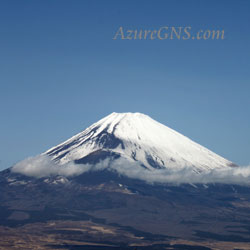 |
| 第五候
The 5th-ko |
日本
Japan |
霞始靆
(かすみ はじめて たなびく)
「霞がたなびき始める」
“A haze begins trailing.” |
| 中国
China |
鴻雁来
(こうがん きたる)
「雁が北へ渡って行く」
“Wild geese fly back to the north.” |
 |
| 第六候
The 6th-ko |
日本
Japan |
草木萌動
(そうもく めばえ いずる)
(そうもく きざし うごく)
「草木が芽吹き始める」
“Plants begin to sprout or bud.” |
| 中国
China |
|
| 啓蟄
(けいちつ)
Keichitsu
Hibernation insects awaken
(二月節)
(February-setsu)
3月5日
-6日
March 5th
-6th
太陽黄経
solar longitude
345° |
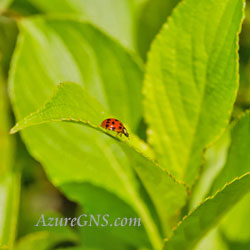 |
| 第七候
The 7th-ko |
日本
Japan |
蟄虫啓戸
(すごもりむし とを ひらく)
(ちっちゅう こを ひらく)
「冬籠もりの虫が出てくる」
“Insects have come out of hibernation.” |
| 中国
China |
桃始華
(もも はじめて はな さく)
「桃の花が咲き始める」
“Peach blossoms begin to bloom.” |
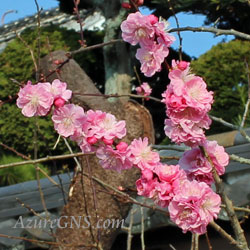 |
| 第八候
The 8th-ko |
日本
Japan |
桃始笑
(もも はじめて さく)
(もも はじめて わらう)
「桃の花が咲き始める」
“Peach blossoms begin to bloom.” |
| 中国
China |
倉庚鳴
(そうこう なく)
「倉庚(そうこう=高麗鶯)が鳴き始める」
“Goryeo bush warblers begin to sing.” |
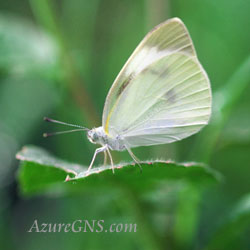 |
| 第九候
The 9th-ko |
日本
Japan |
菜虫化蝶
(なむし ちょうと なる)
(なむし ちょうと けす)
「青虫が羽化して紋白蝶になる」
“Green caterpillars change into cabbage butterflies.” |
| 中国
China |
鷹化為鳩
(たか けして はとと なる)
「鷹が鳩に姿を変える」
“Hawks disguise themselves as doves.” |
|
| 春分
(しゅんぶん)
Shumbun
Spring center
(Vernal equinox)
(二月中)
(February-chu)
3月20日
-21日
March 20th
-21st
太陽黄経
solar longitude
0° |
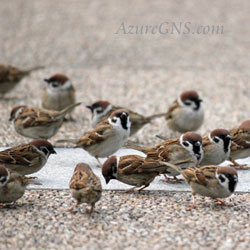 |
| 第十候
The 10th-ko |
日本
Japan |
雀始巣
(すずめ はじめて すくう)
「雀が巣を構え始める」
“Sparrows begin to build nests.” |
| 中国
China |
玄鳥至
(げんちょう いたる)
「燕が南からやって来る」
“Swallows come from the south.” |
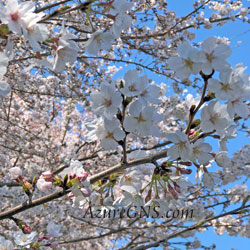 |
| 第十一候
The 11th-ko |
日本
Japan |
桜始開
(さくら はじめて ひらく)
「桜の花が咲き始める」
“Cherry blossoms begin to come out.” |
| 中国
China |
雷乃発声
(かみなり すなわち こえを はっす)
(らい すなわち こえを はっす)
「遠くで雷の音がし始める」
“Thunder begins to roar in the distance.” |
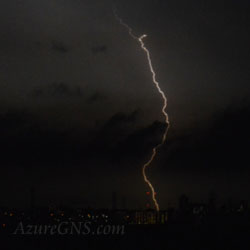 |
| 第十二候
The 12th-ko |
日本
Japan |
雷乃発声
(かみなり すなわち こえを はっす)
(らい すなわち こえを はっす)
「遠くで雷の音がし始める」
“Thunder begins to roar in the distance.” |
| 中国
China |
始雷
(はじめて いなびかりす)
「稲光が初めて光る」
“Lightning flashes for the first time.” |
|
| 清明
(せいめい)
Seimei
Clear and bright
(三月節)
(March-setsu)
4月4日
-5日
April 4th
-5th
太陽黄経
solar longitude
15° |
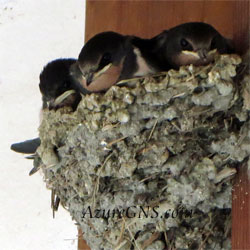 |
| 第十三候
The 13th-ko |
日本
Japan |
玄鳥至
(つばめ いたる)
(つばめ きたる)
「燕が南からやって来る」
“Swallows come from the south.” |
| 中国
China |
桐始華
(きり はじめて はなさく)
「桐の花が咲き始める」
“Paulownias begin to bloom.” |
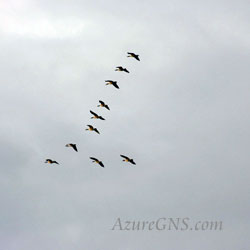 |
| 第十四候
The 14th-ko |
日本
Japan |
鴻雁北
(こうがん きたへ かえる)
(こうがん きたす)
「雁が北へ渡って行く」
“The wild geese fly back to the north.” |
| 中国
China |
田鼠化為鴽
(でんそ けして うずらと なる)
「田鼠(もぐら)が鴽(うずら)になる」
“Moles disguise themselves as quails.” |
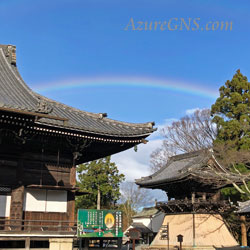 |
| 第十五候
The 15th-ko |
日本
Japan |
虹始見
(にじ はじめて あらわる)
「雨の後に虹が出始める」
“A rainbow begins to appear after rain.” |
| 中国
China |
|
| 穀雨
(こくう)
Kokuu
Wheat rain
(Corn rain)
(三月中)
(March-chu)
4月20日
-21日
April 20th
-21st
太陽黄経
solar longitude
30° |
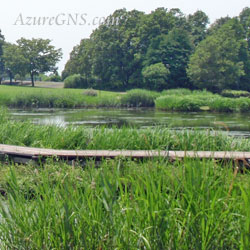 |
| 第十六候
The 16th-ko |
日本
Japan |
葭始生
(あし はじめて しょうず)
(よし はじめて しょうず)
「葦(アシ、ヨシ)が芽を吹き始める」
“Reeds begin to bud.” |
| 中国
China |
萍始生
(うきくさ はじめて しょうず)
「浮き草が芽を出し始める」
“Floating weeds begin to bud.” |
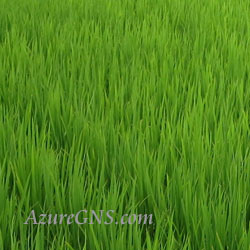 |
| 第十七候
The 17th-ko |
日本
Japan |
霜止出苗
(しも やんで なえ いづる)
(しも やみて なえ いずる)
「霜が終わり稲の苗が生長する」
“Rice Seedlings grow after the frost.” |
| 中国
China |
鳴鳩払其羽
(めいきゅう その はねを はらう)
「鳴鳩(いかる=スズメ目アトリ科の鳥類/カッコウ説も有り)羽づくろいをしている」
“Chinese grosbeaks are preening their feathers.” |
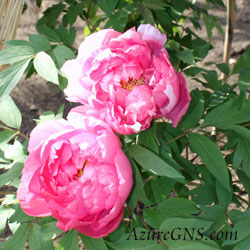 |
| 第十八候
The 18th-ko |
日本
Japan |
牡丹華
(ぼたん はなさく)
「牡丹の花が咲く」
“Peony flowers are in bloom.” |
| 中国
China |
戴勝降于桑
(たいしょう くわに くだる)
「戴勝(たいしょう=ヤツガシラという鳥類)が桑の木に止まって蚕を生む」
“The Eurasian hoopoes lay silkworms on mulberry trees.” |
| |
| 夏 Summer |
| 立夏
(りっか)
Rikka
The beginning of summer
(Summer commences)
(四月節)
(April-setsu)
5月5日
-6日
May 5th
-6th
太陽黄経
solar longitude
45° |
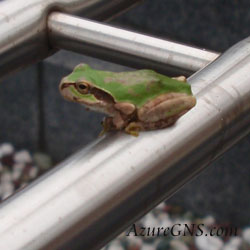 |
| 第十九候
The 19th-ko |
日本
Japan |
蛙始鳴
(かわず はじめて なく)
「蛙が鳴き始める」
“Frogs begin to croak.” |
| 中国
China |
螻蟈鳴
(ろうこく なく)
「螻蟈(けら)が鳴き始める」
“Mole crickets begin to chirp.” |
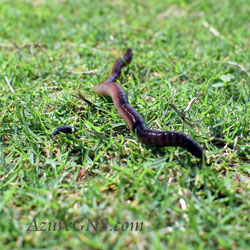 |
| 第二十候
The 20th-ko |
日本
Japan |
蚯蚓出
(みみず いづる)
(きゅういん いずる)
「蚯蚓(みみず)が地上に這い出る」
“Earthworms are coming out of the ground.” |
| 中国
China |
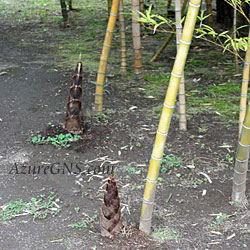 |
| 第二十一候
The 21st-ko |
日本
Japan |
竹笋生
(たけのこ しょうず)
(ちくかん しょうず)
「筍(たけのこ)が生えて来る」
“Bamboo shoots are coming up.” |
| 中国
China |
王瓜生
(おうか しょうず)
「王瓜(からすうり)の実が生り始める」
“Snake gourds begin to bear fruit.” |
|
| 小満
(しょうまん)
Shoman
Creatures plenish
(Corn forms)
(四月中)
(April-chu)
5月21日
-22日
May 21st
-22nd
太陽黄経
solar longitude
60° |
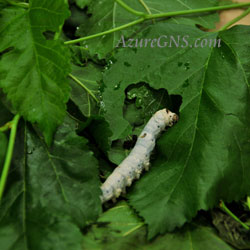 |
| 第二十二候
The 22nd-ko |
日本
Japan |
蚕起食桑
(かいこ おきて くわを はむ)
(かいこ おこって くわを くらう)
「蚕が桑を盛んに食べ始める」
“Silkworms begin to feed.” |
| 中国
China |
苦菜秀
(くさい ひいず)
「苦菜(にがな=キク科の多年草)がよく茂る」
“Toothed ixeridiums are growing thick.” |
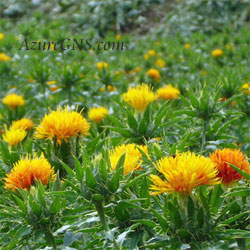 |
| 第二十三候
The 23rd-ko |
日本
Japan |
紅花栄
(べにばな さかう)
(こうか さかう)
「紅花が盛んに咲く」
“Safflowers have bloomed one after another.” |
| 中国
China |
靡草死
(びそう かる)
「薺(なずな)など田に生える草が枯れる」
“Weeds in rice paddies, such as shepherd’s purses, wither.” |
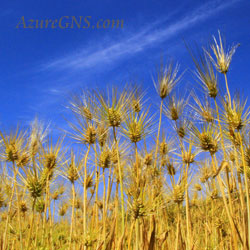 |
| 第二十四候
The 24th-ko |
日本
Japan |
麦秋至
(ばくしゅう いたる)
(むぎのとき いたる)
「麦が熟し麦秋(ばくしゅう)となる」
“Barley has ripened in the harvest time.” |
| 中国
China |
小暑至
(しょうしょ いたる)
「ようやく暑さが加わり始める」
“Finally, it is getting hotter.” |
|
| 芒種
(ぼうしゅ)
Boshu
Seeding millet
(Corn on ear)
(五月節)
(May-setsu)
6月5日
-6日
June 5th
-6th
太陽黄経
solar longitude
75° |
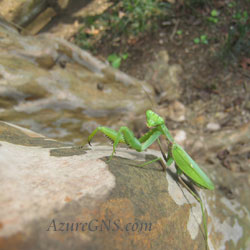 |
| 第二十五候
The 25th-ko |
日本
Japan |
螳螂生
(かまきり しょうず)
(とうろう しょうず)
「蟷螂(かまきり)が生まれ出る」
“Praying mantises are born.” |
| 中国
China |
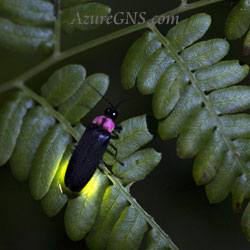 |
| 第二十六候
The 26th-ko |
日本
Japan |
腐草為蛍
(くされたるくさ ほたるとなる)
(ふそう ほたると なる)
「腐った草が蒸れ蛍になる」
“Rotten weeds change into fireflies.” |
| 中国
China |
鵙始鳴
(もず はじめて なく)
「鵙(もず)が鳴き始める」
“Shrikes begin to sing.” |
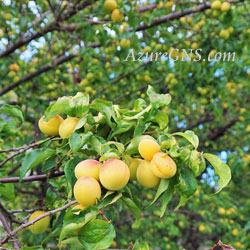 |
| 第二十七候
The 27th-ko |
日本
Japan |
梅子黄
(うめのみ きばむ)
(うめのみ きなり)
「梅の実が黄ばんで熟す」
“Fruits of Japanese apricots turn yellow and become ripe.” |
| 中国
China |
反舌無声
(はんぜつ こえなし)
「反舌(はんぜつ=もず)が鳴かなくなる」
“Shrikes stop singing.” |
|
| 夏至
(げし)
Geshi
Summer maximum
(Summer solstice)
(五月中)
(May-chu)
6月21日
-22日
June 21st
-22nd
太陽黄経
solar longitude
90° |
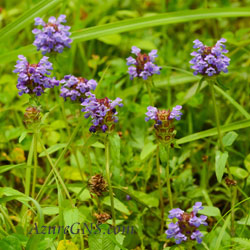 |
| 第二十八候
The 28th-ko |
日本
Japan |
乃東枯
(なつかれ くさかるる)
(ないとう かるる)
「夏枯草(うつぼぐさ)が枯れる」
“Common self-heals wither.” |
| 中国
China |
鹿角解
(しかの つの おつ)
「鹿が角を落とす」
“Stags shed their antlers.” |
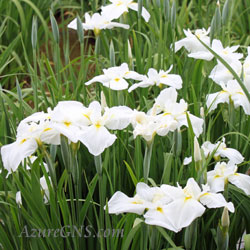 |
| 第二十九候
The 29th-ko |
日本
Japan |
菖蒲華
(あやめ はな さく)
(しょうぶ はな さく)
「菖蒲の花が咲く」
“Iris flowers are blooming.” |
| 中国
China |
蜩始鳴
(せみ はじめて なく)
「蝉(せみ)が鳴き始める」
“Cicadas begin to chirp.” |
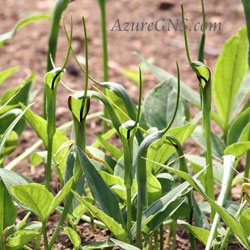 |
| 第三十候
The 30th-ko |
日本
Japan |
半夏生
(はんげしょうず)
「烏柄杓(からすびしゃく)が生える」
“Crow-dippers are growing.” |
| 中国
China |
|
| 小暑
(しょうしょ)
Shosho
Moderate heat
(Hot summer)
(六月節)
(June-setsu)
7月7日
-8日
July 7th
-8th
太陽黄経
solar longitude
105° |
 |
| 第三十一候
The 31st-ko |
日本
Japan |
温風至
(あつかぜ いたる)
(おんぷう いたる)
「暖かい風が吹いてくる」
“Warm winds begin to blow.” |
| 中国
China |
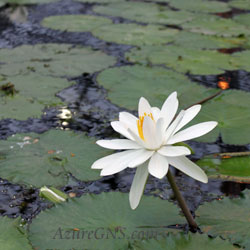 |
| 第三十二候
The 32nd-ko |
日本
Japan |
蓮始開
(はす はじめて ひらく)
(はす はじめて はなさく)
「蓮の花が開き始める」
“Lotus flowers begin to bloom.” |
| 中国
China |
蟋蟀居壁
(しっしゅつ かべに おる)
「蟋蟀(きりぎりす)が壁で鳴く」
“Grasshoppers are chirping on the wall.” |
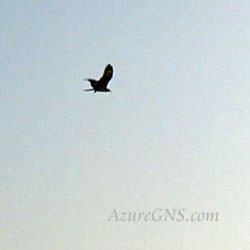 |
| 第三十三候
The 33rd-ko |
日本
Japan |
鷹乃学習
(たか すなわち わざを なす)
(たか すなわち がくしゅうす)
「鷹の幼鳥が飛ぶことを覚える」
“Young hawks learn how to fly.” |
| 中国
China |
|
| 大暑
(たいしょ)
Taisho
Great heat
(Hottest summer)
(六月中)
(June-chu)
7月22日
-23日
July 22nd
-23rd
太陽黄経
solar longitude
120° |
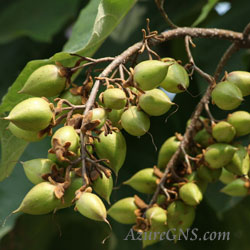 |
| 第三十四候
The 34th-ko |
日本
Japan |
桐始結花
(きり はじめて はなを むすぶ)
「桐の実が生り始める」
“Paulownias begin to bear their fruits.” |
| 中国
China |
腐草為蛍
(くされたるくさ ほたるとなる)
(ふそう ほたると なる)
「腐った草が蒸れ蛍となる」
“Rotten weeds change into fireflies.” |
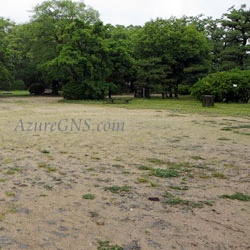 |
| 第三十五候
The 35th-ko |
日本
Japan |
土潤溽暑
(つち うるおうて むしあつし)
(つち うるおいて あつし)
(つち うるおいて じゅくしょす)
「土が湿って蒸暑くなる」
“Soil dampens and the air becomes hot and humid.” |
| 中国
China |
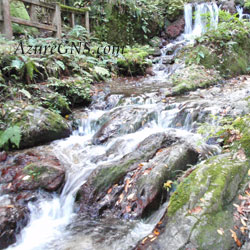 |
| 第三十六候
The 36th-ko |
日本
Japan |
大雨時行
(たいう ときどきに ふる)
(たいう ときどき おこなう)
(たいう ときに ゆく)
「時として大雨が降る」
“Sometimes it rains heavily.” |
| 中国
China |
| |
| 秋 Autumn |
| 立秋
(りっしゅう)
Risshu
The beginning of autumn
(Autumn commences)
(七月節)
(July-setsu)
8月7日
-8日
August 7th
-8th
太陽黄経
solar longitude
135° |
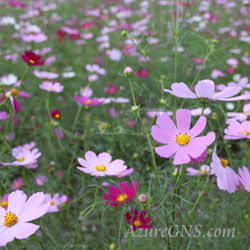 |
| 第三十七候
The 37th-ko |
日本
Japan |
涼風至
(すずかぜ いたる)
「涼しい風が立ち始める」
“Cool winds begin to blow.” |
| 中国
China |
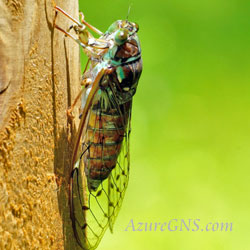 |
| 第三十八候
The 38th-ko |
日本
Japan |
寒蝉鳴
(ひぐらし なく)
「蜩(ひぐらし)が鳴き始める」
“Higurashi cicadas begin to chirp.” |
| 中国
China |
白露降
(はくろ くだる)
「朝露が降り始める」
“Morning mist begins to fall.” |
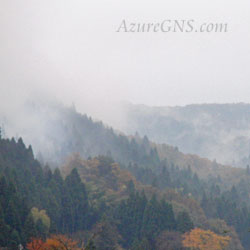 |
| 第三十九候
The 39th-ko |
日本
Japan |
蒙霧升降
(ふかきり まとう)
(ふかき きり まとう)
「深い霧が立ち込める」
“Dense fog hangs over all around.” |
| 中国
China |
寒蝉鳴
(ひぐらし なく)
「蜩(ひぐらし)が鳴き始める」
“Higurashi cicadas begin to chirp.” |
|
| 処暑
(しょしょ)
Shosho
Heat withdraws
(End of Heat)
(七月中)
(July-chu)
8月23日
-24日
August 23rd
-24th
太陽黄経
solar longitude
150° |
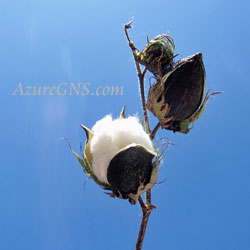 |
| 第四十候
The 40th-ko |
日本
Japan |
綿柎開
(わたの はなしべ ひらく)
(めんぷ ひらく)
「綿を包む咢(がく)が開く」
“Cups of cotton flowers are opening.” |
| 中国
China |
鷹乃祭鳥
(たか すなわち とりを まつる)
「鷹が捕らえた鳥を並べて食べる」
“Hawks eat birds caught by themselves after placing them side by side.” |
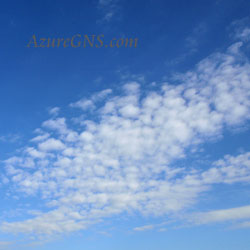 |
| 第四十一候
The 41st-ko |
日本
Japan |
天地始粛
(てんち はじめて しじむ)
(てんち はじめて しゅくす)
(てんち はじめて さむし)
「ようやく暑さが鎮まる」
“Finally, the heat eases.” |
| 中国
China |
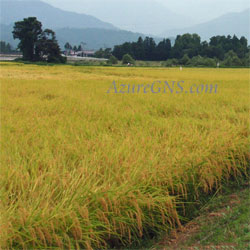 |
| 第四十二候
The 42nd-ko |
日本
Japan |
禾乃登
(こくもの すなわち みのる)
(か すなわち みのる)
「稲が実る」
“Rice is ripening.” |
| 中国
China |
|
| 白露
(はくろ)
Hakuro
Dews
(White dew)
(八月節)
(August-setsu)
9月7日
-8日
September 7th
-8th
太陽黄経
solar longitude
165° |
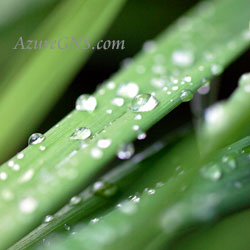 |
| 第四十三候
The 43rd-ko |
日本
Japan |
草露白
(くさのつゆしろし)
(そうろ しろし)
「草に降りた露が白く光る」
“Dewdrops on grass shine white.” |
| 中国
China |
鴻雁来
(こうがん きたる)
「雁が飛来し始める」
“Wild geese begin to come flying.” |
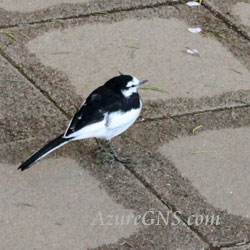 |
| 第四十四候
The 44th-ko |
日本
Japan |
鶺鴒鳴
(せきれい なく)
「鶺鴒(せきれい)が鳴き始める」
“Wagtails begin to sing.” |
| 中国
China |
玄鳥帰
(げんちょう かえる)
「燕が南へ帰って行く」
“Swallows fly back to the south.” |
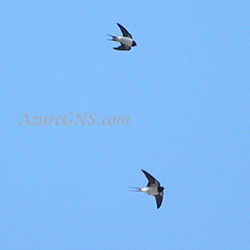 |
| 第四十五候
The 45th-ko |
日本
Japan |
玄鳥去
(つばめ さる)
(げんちょう さる)
「燕が南へ帰って行く」
“Swallows fly back to the south.” |
| 中国
China |
羣鳥養羞
(ぐんちょう しゅうを やしなう)
「多くの鳥が食べ物を蓄える」
“Many birds store food.” |
|
| 秋分
(しゅうぶん)
Shubun
Autumn center
(Autumn Equinox)
(八月中)
(August-chu)
9月23日
-24日
September 23rd
-24th
太陽黄経
solar longitude
180°
|
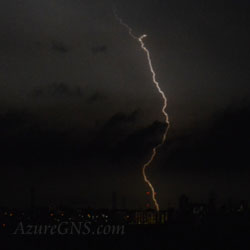 |
| 第四十六候
The 46th-ko |
日本
Japan |
雷乃収声
(かみなり すなわち こえを おさむ)
(らい すなわち こえを おさむ)
「雷が鳴り響かなくなる」
“Thunder stops rolling.” |
| 中国
China |
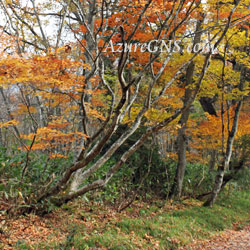 |
| 第四十七候
The 47th-ko |
日本
Japan |
蟄虫坏戸
(むし かくれて とを ふさぐ)
(ちっちゅう こを はいす)
「虫が土中に掘った穴をふさぐ」
“Insects close holes dug by themselves.” |
| 中国
China |
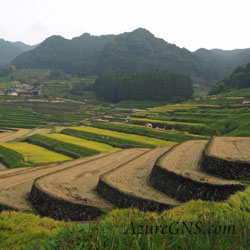 |
| 第四十八候
The 48th-ko |
日本
Japan |
水始涸
(みず はじめて かる)
「田畑の水を干し始める」
“Water in rice paddies and fields starts to be drained.” |
| 中国
China |
|
| 寒露
(かんろ)
Kanro
Cold dews
(九月節)
(September-setsu)
10月8日
-9日
October 8th
-9th
太陽黄経
solar longitude
195° |
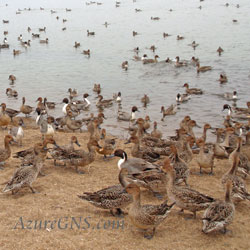 |
| 第四十九候
The 49th-ko |
日本
Japan |
鴻雁来
(こうがん きたる)
「雁が飛来し始める」
“Wild geese begin to come flying.” |
| 中国
China |
鴻雁来賓
(こうがん らいひんす)
「雁が多数飛来して客人となる」
“Many geese come flying as guests.” |
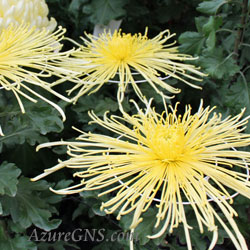 |
| 第五十候
The 50th-ko |
日本
Japan |
菊花開
(きくの はな ひらく)
「菊の花が咲く」
“Chrysanthemums are blooming.” |
| 中国
China |
雀入大水為蛤
(すずめ たいすいに いり はまぐりと なる)
「雀が海に入って蛤になる」
“Sparrows dive into the sea and become clams.” |
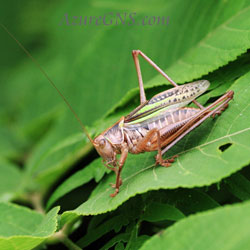 |
| 第五十一候
The 51st-ko |
日本
Japan |
蟋蟀在戸
(きりぎりす とに あり)
「蟋蟀(きりぎりす)が戸の辺りで鳴く」
“Grasshoppers are chirping near the door.” |
| 中国
China |
菊有黄華
(きくに こうかあり)
「菊の花が咲き出す」
“Chrysanthemums begin to bloom.” |
|
| 霜降
(そうこう)
Soko
Frost
(九月中)
(September-chu)
10月23日
-24日
October 23rd
-24th
太陽黄経
solar longitude
210° |
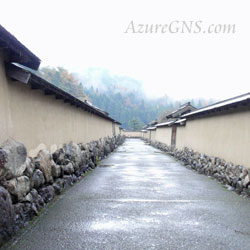 |
| 第五十二候
The 52nd-ko |
日本
Japan |
霜始降
(しも はじめて ふる)
「霜が降り始める」
“Frost begins to fall down.” |
| 中国
China |
豺乃祭獣
(さい すなわち けものを まつる)
「山犬が捕らえた獣を並べて食べる」
“Wild dogs eat animals they caught after placing them side by side.” |
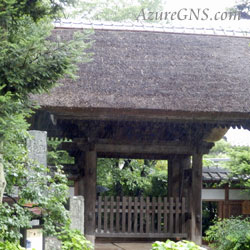 |
| 第五十三候
The 53rd-ko |
日本
Japan |
霎時施
(こさめ ときどき ふる)
「小雨がしとしと降る」
“It is drizzling.” |
| 中国
China |
草木黄落
(そうもく こうらくす)
「草木の葉が黄ばんで落ち始める」
“Leaves of plants turn yellow and begin to fall.” |
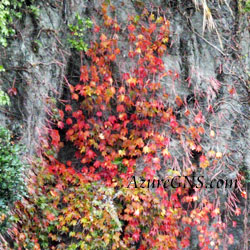 |
| 第五十四候
The 54th-ko |
日本
Japan |
楓蔦黄
(もみじ つた きばむ)
「紅葉や蔦が黄葉する」
“Maples and ivies turn yellow.” |
| 中国
China |
蟄虫咸俯
(ちっちゅう みな ふす)
(ちっちゅう ことごとく ふす)
「虫がみな穴に潜って動かなくなる」
“All insects go into the holes and stop moving. |
| |
| 冬 Winter |
| 立冬
(りっとう)
Ritto
The beginning of winter
(Winter commences)
(十月節)
(October-setsu)
11月7日
-8日
November 7th
-8th
太陽黄経
solar longitude
225° |
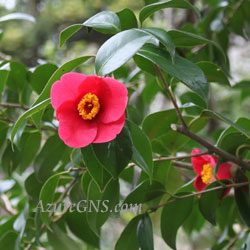 |
| 第五十五候
The 55th-ko |
日本
Japan |
山茶始開
(つばき はじめて ひらく)
「山茶花(さざんか)が咲き始める」
“Sasanquas begin to bloom.” |
| 中国
China |
水始氷
(みず はじめて こおる)
「水が凍り始める」
“Water begins to freeze.” |
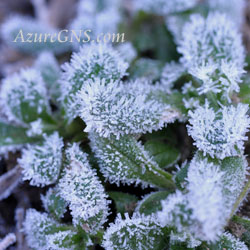 |
| 第五十六候
The 56th-ko |
日本
Japan |
地始凍
(ち はじめて こおる)
「大地が凍り始める」
“The earth begins to freeze.” |
| 中国
China |
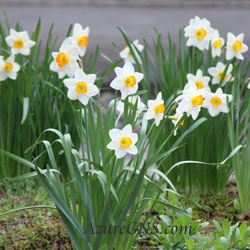 |
| 第五十七候
The 57th-ko |
日本
Japan |
金盞香
(きんせんか さく)
「水仙の花が咲く」
“Narcissuses are in bloom.” |
| 中国
China |
雉入大水為蜃
(きじ たいすいにいり おおはまぐりと なる)
「雉(きじ)が海に入って大蛤(おおはまぐり)になる」
“Pheasants dive into the sea and turn into big clams.” |
|
| 小雪
(しょうせつ)
Shosetu
Light snow
(十月中)
(October-chu)
11月22日
-23日
November 22nd
-23rd
太陽黄経
solar longitude
240° |
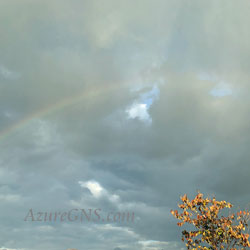 |
| 第五十八候
The 58th-ko |
日本
Japan |
虹蔵不見
(にじ かくれて みえず)
「虹を見かけなくなる」
“Rainbows are hardly seen.” |
| 中国
China |
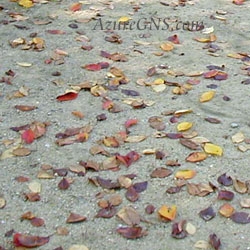 |
| 第五十九候
The 59th-ko |
日本
Japan |
朔風払葉
(きたかぜ このはを はらう)
「北風が木の葉を払い除ける」
“North wind blows away leaves.” |
| 中国
China |
天気上騰地気下降
(てんき じょうしょうし ちき かこうす)
「天地の寒暖が逆になる」
“The warm climate turns into the cold climate.” |
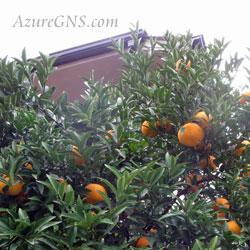 |
| 第六十候
The 60th-ko |
日本
Japan |
橘始黄
(たちばな はじめて きばむ)
「橘の実が黄色くなり始める」
“Fruits of citrus tachibana begin to turn yellow.” |
| 中国
China |
閉塞而成冬
(へいそくして ふゆを なす)
「天地の気が塞がって冬となる」
“Qi (energy force) of heaven and earth closes and winter has come.” |
|
| 大雪
(たいせつ)
Taisetu
Heavy snow
(十一月節)
(November-setsu)
12月7日
-8日
December 7th
-8th
太陽黄経
solar longitude
255° |
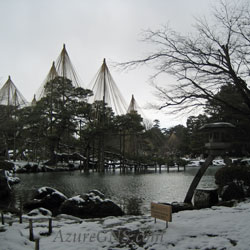 |
| 第六十一候
The 61st-ko |
日本
Japan |
閉塞成冬
(そらさむく ふゆと なる)
「天地の気が塞がって冬となる」
“Qi (energy force) of heaven and earth closes and winter has come.” |
| 中国
China |
鶡鴠不鳴
(かつたん なかず)
「ミミキジが鳴かなくなる」
“Brown eared pheasants stop singing.” |
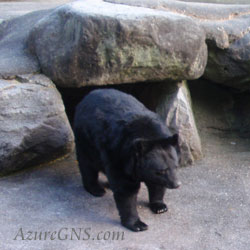 |
| 第六十二候
The 62nd-ko |
日本
Japan |
熊蟄穴
(くま あなに こもる)
「熊が冬眠のために穴に隠れる」
“Bears hide themselves in the holes for hibernation.” |
| 中国
China |
虎始交
(とら はじめて つるむ)
「虎が交尾を始める」
“Tigers start to mate.” |
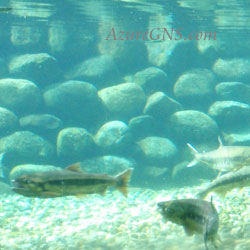 |
| 第六十三候
The 63rd-ko |
日本
Japan |
鱖魚群
(さけのうお むらがる)
「鮭が群がり川を上る」
“A school of salmon go up rivers.” |
| 中国
China |
茘挺出
(れいてい いずる)
「ネジアヤメが芽を出し始める」
“Iris lacteas begin to put out buds.” |
|
| 冬至
(とうじ)
Toji
Winter maximum
(Winter solstice)
(十一月中)
(November-chu)
12月21日
-22日
December 21st
-22nd
太陽黄経
solar longitude
270° |
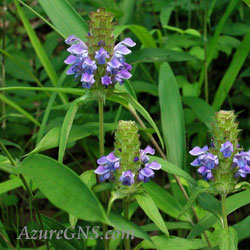 |
| 第六十四候
The 64th-ko |
日本
Japan |
乃東生
(なつ かれくさ しょうず)
「夏枯草が芽を出す」
“Buds have come out of dead grass in summer.” |
| 中国
China |
蚯蚓結
(きゅういん むすぶ)
「蚯蚓(みみず)が地中で塊となる」
“Earthworms join together in the ground.” |
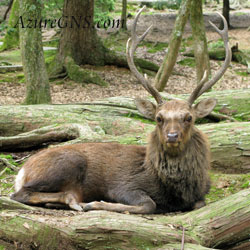 |
| 第六十五候
The 65th-ko |
日本
Japan |
麋角解
(おおしかの つの おつる)
(さわしかの つの おる)
(びかく げす)
「大鹿が角を落とす」
“Big stags shed their antlers.” |
| 中国
China |
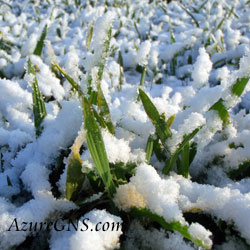 |
| 第六十六候
The 66th-ko |
日本
Japan |
雪下出麦
(ゆき わたりて むぎ いづる)
「雪の下で麦が芽を出す」
“Barley has budded under snow.” |
| 中国
China |
水泉動
(すいせん うごく)
「地中で凍った泉が動き始める」
“Springs begin to move under the frozen earth.” |
|
| 小寒
(しょうかん)
Shokan
A bit frigid
(Moderate cold)
(十二月節)
(December-setsu)
1月5日
-6日
January 5th
-6th
太陽黄経
solar longitude
285° |
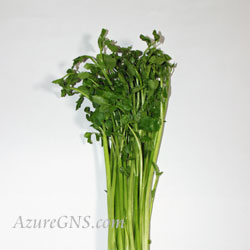 |
| 第六十七候
The 67th-ko |
日本
Japan |
芹乃栄
(せり すなわち さかう)
「芹がよく生育する」
“Japanese parsley grows well.” |
| 中国
China |
雁北郷
(かり きたに むかう)
「雁が北に渡り始める」
“Wild geese start to fly to the north.” |
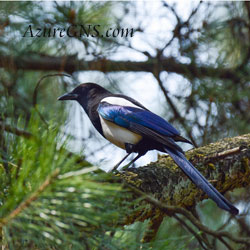 |
| 第六十八候
The 68th-ko |
日本
Japan |
水泉動
(すいせん うごく)
「地中で凍った泉が動き始める」
“Springs begin to move under the frozen earth.” |
| 中国
China |
鵲始巣
(かささぎ はじめて すくう)
「鵲(かささぎ)が巣を作り始める」
“Magpies begin to build nests.” |
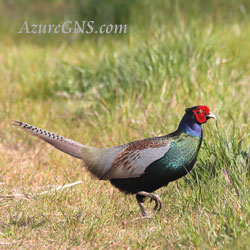 |
| 第六十九候
The 69th-ko |
日本
Japan |
雉始雊
(きじ はじめて なく)
「雄の雉が鳴き始める」
“Cock-pheasants begin to make sounds.”
“Cock-pheasants begin to chirp.”
“Male pheasants begin to sing.” |
| 中国
China |
|
| 大寒
(だいかん)
Daikan
Most frigid
(Severe cold)
(十二月中)
(December-chu)
1月20日
-21日
January 20th
-21st
太陽黄経
solar longitude
300° |
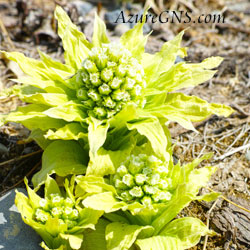 |
| 第七十候
The 70th-ko |
日本
Japan |
款冬華
(ふきの はな さく)
「蕗の薹(ふきのとう)が蕾を出す」
“Butterbur sprouts have come out.” |
| 中国
China |
鶏始乳
(にわとり はじめて にゅうす)
「鶏が卵を産み始める」
“Hens begin to lay eggs.” |
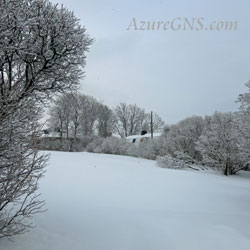 |
| 第七十一候
The 71st-ko |
日本
Japan |
水沢腹堅
(さわみず こおり つめる)
「沢に氷が厚く張りつめる」
“Swamps are covered with thick ice.” |
| 中国
China |
鷙鳥厲疾
(しちょう れいしつす)
「鳶や鷹などが空高く速く飛び始める」 |
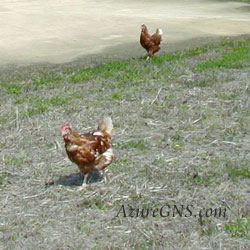 |
| 第七十二候
The 72nd-ko |
日本
Japan |
鶏始乳
(にわとり はじめて とやに つく)
「鶏が卵を産み始める」
“Hens begin to lay eggs.” |
| 中国
China |
水沢腹堅
(すいたく あつく かたし)
「沢に氷が厚く張りつめる」
“Swamps are covered with thick ice.” |